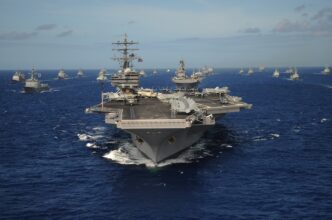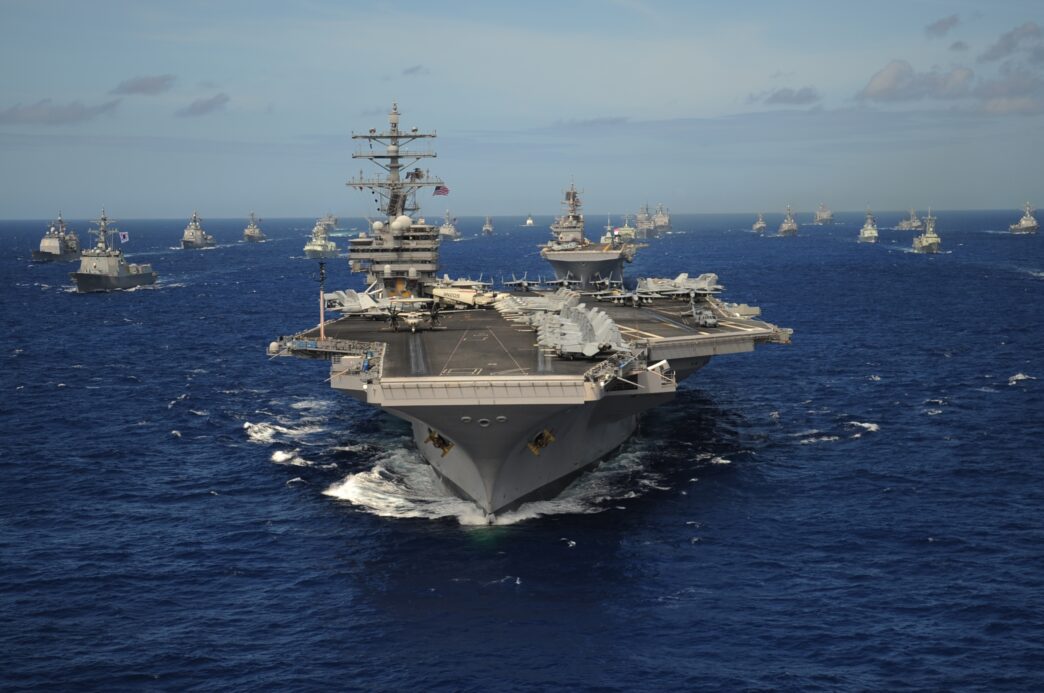Executive Summary
The Story So Far
Why This Matters
Who Thinks What?
President Donald Trump has indicated he has made a decision regarding potential military operations in Venezuela, following a series of high-level briefings and a significant US military buildup in the Caribbean. The move comes as Trump weighs options to address illegal migrant and drug flows, alongside the possibility of ousting Venezuelan President Nicolás Maduro.
Speaking to reporters aboard Air Force One on November 14, 2025, Trump stated, “I sort of have made up my mind — yeah. I mean, I can’t tell you what it would be, but I sort of have,” when asked about the recent meetings and a potential course of action.
Briefings and Options Presented
Trump received multiple briefings this week on military options for Venezuela. A smaller group, including Defense Secretary Pete Hegseth and Chairman of the Joint Chiefs of Staff Gen. Dan Caine, briefed the president on Wednesday. A larger national security team, which included Secretary of State Marco Rubio, met with Trump in the Situation Room on Thursday.
During these sessions, Trump and his team reviewed a wide range of target options. These included potential air strikes on Venezuelan military or government facilities, drug-trafficking routes, or a more direct attempt to remove Maduro from power. While Trump previously authorized the CIA to operate in Venezuela, administration officials have indicated a current lack of legal justification for land-based attacks, though this could be generated.
Trump has reportedly shown caution in past meetings, wary of ordering actions that could fail or put American troops at undue risk. He also previously told “60 Minutes” that he was not considering strikes inside Venezuela, despite earlier suggestions to the contrary.
US Military Presence and Venezuelan Response
In recent weeks, the US military has significantly increased its presence in the Caribbean, launching at least 20 strikes on alleged drug-trafficking boats as part of “Operation Southern Spear.” This effort aims to disrupt the flow of illicit drugs into the United States.
The buildup includes the deployment of the USS Gerald R. Ford, described as the US Navy’s “most lethal combat platform,” along with over a dozen warships and approximately 15,000 military personnel. Ten F-35 fighter jets have also been stationed in Puerto Rico, serving as a hub for the heightened military focus on the region. In response, Venezuela has announced a “massive mobilization” of its own military personnel and equipment.
Potential Risks and Rewards
Experts note that any attempt at regime change in Venezuela would require a substantial and long-term US commitment, carrying significant risks. Historically, during his first term, Trump officially recognized opposition leader Juan Guaidó, but a 2019 coup attempt failed to unseat Maduro.
Should Trump succeed in ousting Maduro, potential rewards include claiming a major foreign policy victory by replacing a strongman with an elected leader, enhancing collaboration on drug and migration flows, and securing potential oil deals. However, warnings persist about the challenges of a fractured Venezuelan opposition and a military potentially poised for insurgency.
Venezuelan President Nicolás Maduro, in remarks from Caracas, issued a stark warning against US military intervention, suggesting it could lead to outcomes akin to “another Gaza,” a “new Afghanistan,” or “Vietnam again.” He urged the US to “Stop the war. No to war.”
Domestically, extended US military involvement in Latin America could challenge the political coalition that brought Trump to power, which often emphasized avoiding overseas entanglements. Both Vice President JD Vance and Defense Secretary Pete Hegseth, who served in the Iraq War, have expressed skepticism about foreign conflicts. A GOP congressional staffer noted, “The American people did not vote for Trump to draw the US into a sustained conflict in Latin America.”
Uncertain Path Forward
As President Trump maintains silence on the specifics of his decision, the situation remains fraught with high stakes. The unrevealed path forward involves significant geopolitical implications, regional instability, and potential domestic political ramifications for the Trump administration.








